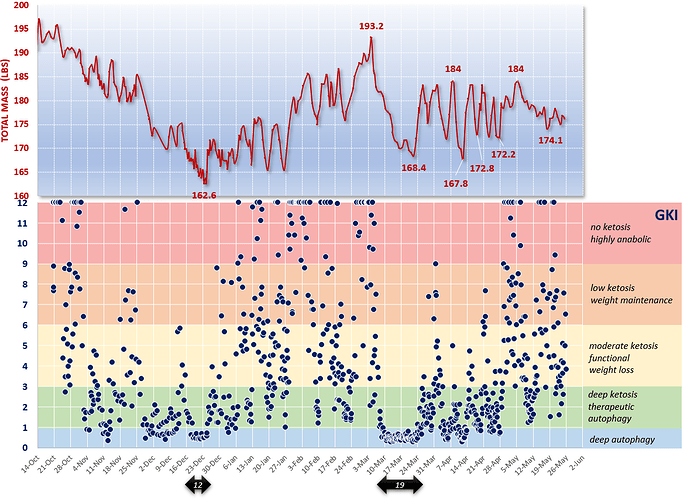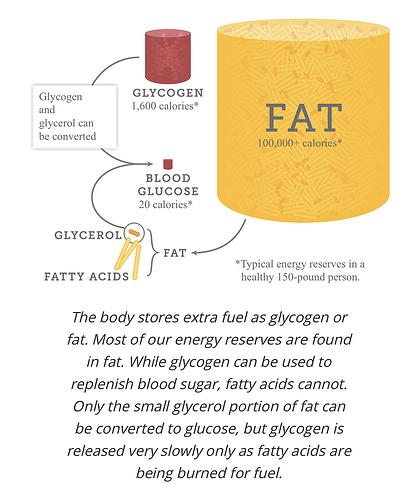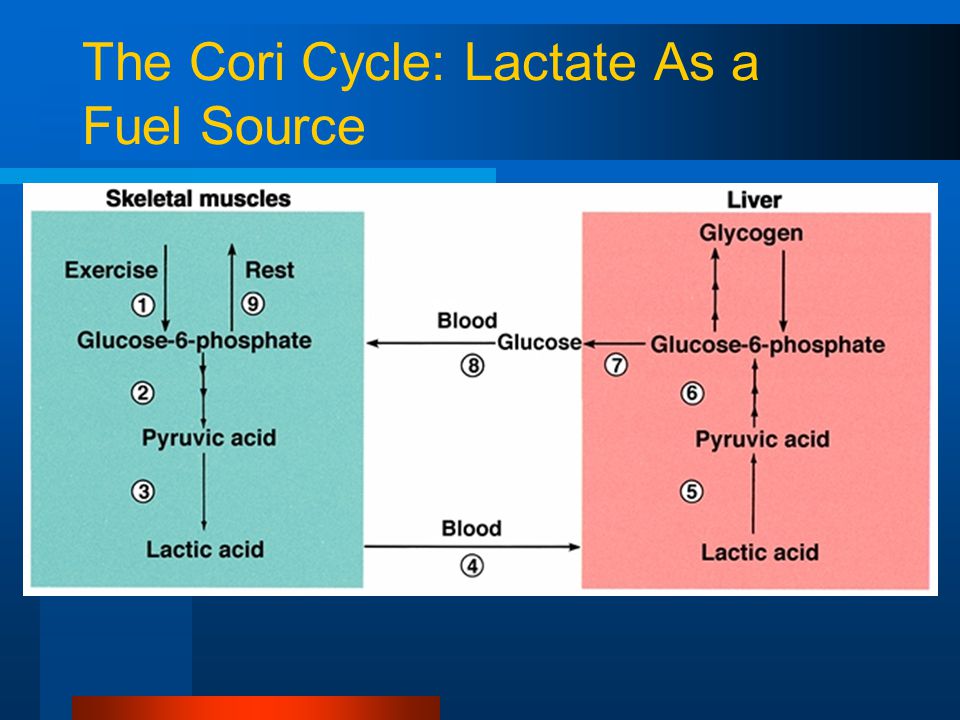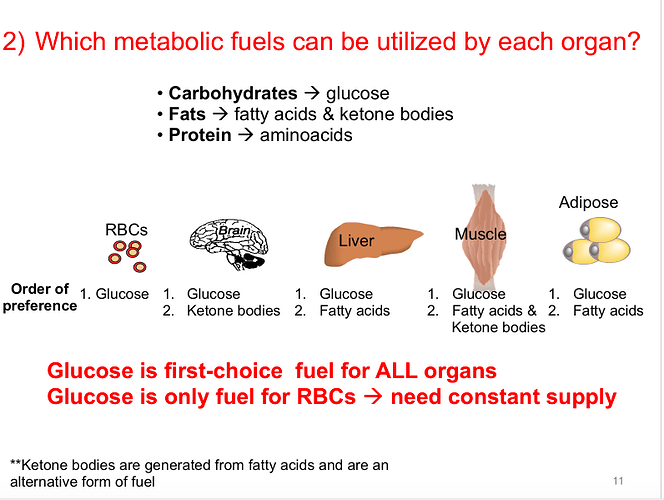here’s my weight compared to GKI. GKI is Glucose/Ketone Index which is heavily a function of ketones
maybe I’m misinterpreting the results so I thought I’d share. Whenever my GKI is low (ketones are high), my weight drops. Whenever my GKI is high (ketones are low), my weight actually increases.
could be in my head, but I’ll open it up to anyone who sees a different pattern or relationship…
not only does it track, but it tracks continuously… when I fasted for a few days, and fed for 2 days… the cyclic GKI resulted in cyclic weight change too. When my GKI was consistently high, I gained consistently. When my GKI was consistently low, I lost consistently.
high ketones indicate that the body is ramping up fatty oxidation and even going into surplus energy preparation from fat. we shouldn’t chase ketones for the purpose of chasing ketones, but if you’re eating normal food (not ketones or MCTs), then the ketones do mean that you’re burning fat.
it is possible that the ketones are a product of dietary fat too, and that’s not useful for losing body fat. that’s a weakness in using the data. But if you’re a fat burner, your ketones will be high and GKI will be low. If you’re a sugar burner, your ketones will be low and GKI will be high.
It is possible to be “lean” and “in shape” and have low ketones… but if you’re trying to lose body fat and you have no or little ketones, then it’s not going to work.






